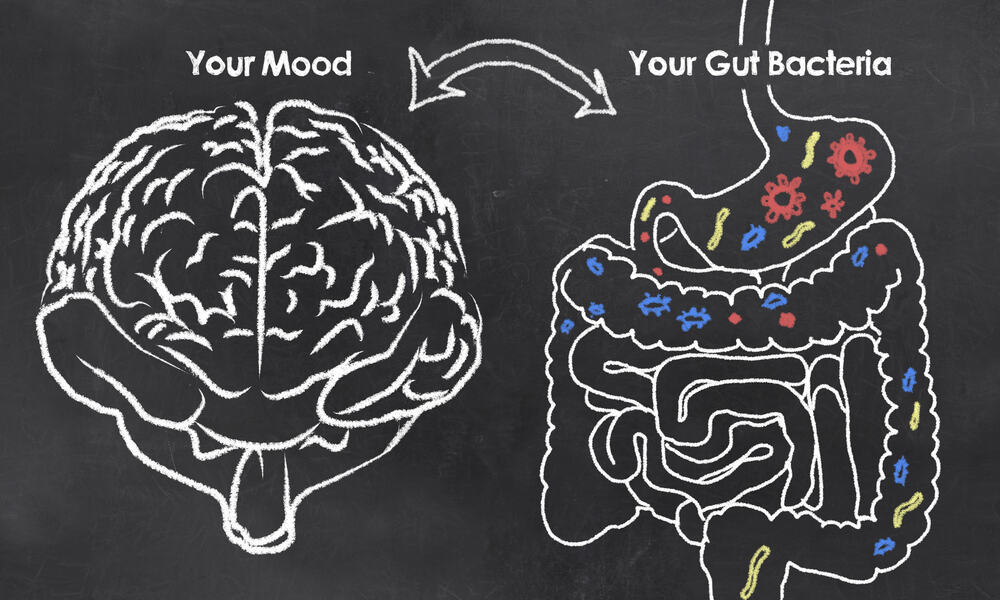Some experts said that probiotics are good for you, but do probiotics work? If so, how and what are their effects on our bodies?
First of all, what are probiotics?
Probiotics are beneficial bacteria and yeasts that support your digestive system. Your body is full of bacteria, both good and bad. Eating or taking probiotics can help restore the natural balance of bacteria in the gut and may help treat a number of health issues.
This article focuses specifically on how probiotics work and how they can improve your mental health and gut. Discover the health benefits of good bacteria and how your digestive system is directly linked to your mind.
What Are Friendly Bacteria?
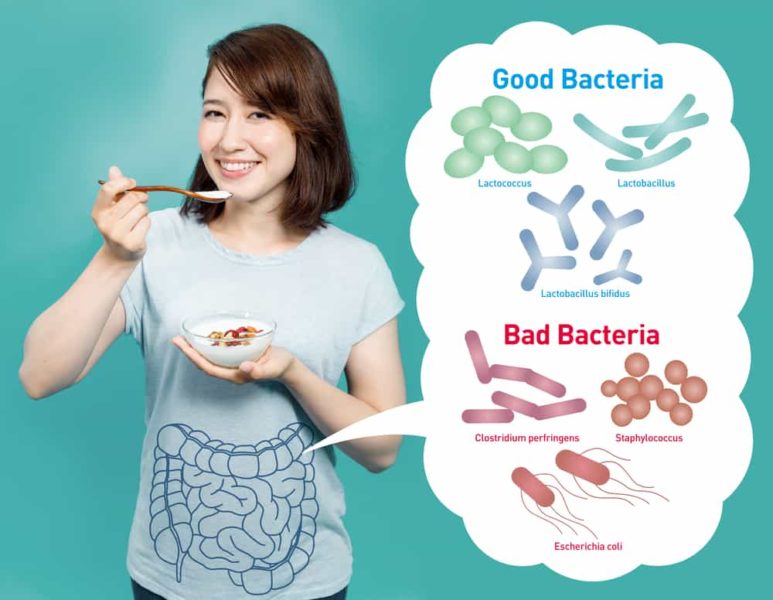
What exactly are ‘friendly’ or ‘good’ bacteria? From a young age, we are conditioned to believe that bacteria are dirty and cause ill health, however, there is such a thing as ‘friendly’ bacteria which is essential for gut health.
An article on Holland & Barrett defines what the phrase ‘good bacteria’ means:
‘Next time you pick up a yogurt that is packed with friendly bacteria, take a look at the label. It may contain Lactobacillus acidophilus or Bifidobacterium bifidum―these are common bacterial cultures that have been shown to have a beneficial effect on our health. So, how do probiotics work? They’re called ‘good’ or ‘friendly’ bacteria because they can help restore the balance of bacteria in our gut following a bout of diarrhea, a course of antibiotics, or an episode of Irritable Bowel Syndrome (IBS), for example. Your gut bacteria are so important because they form a key part of the microbiome―the collective name given to the bacteria that live inside every one of us. Your microbiome is unique―a bit like your genes―and is formed from the moment you’re born. Scientists are now beginning to discover that what we eat directly impacts on the balance of our gut bacteria and, in turn, our general health.’
The Human Microbiome
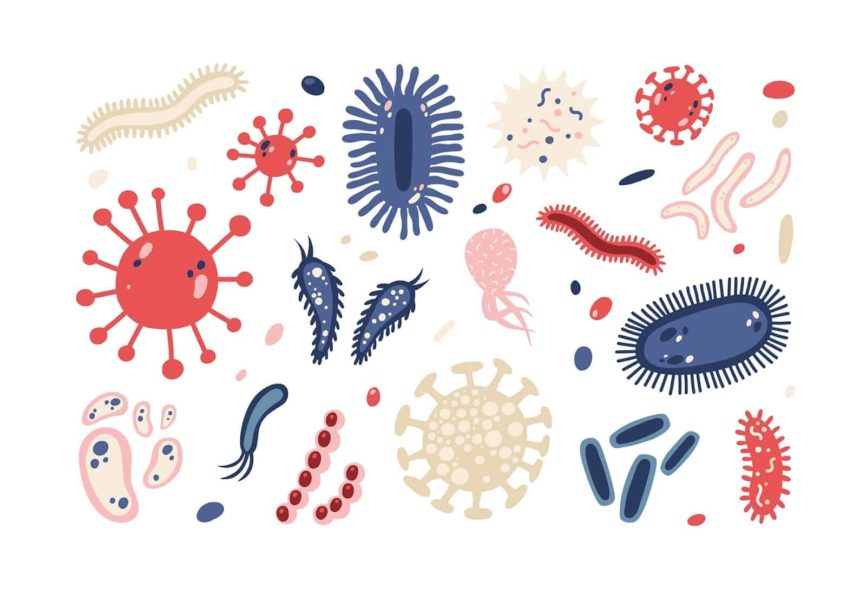
Our bodies hold an array of micro-organisms that differ according to their location, such as the gut or skin etc. They are mostly made up of bacteria, but there are also archaea, fungi, viruses, plus microbes that attack bad bacteria. Altogether, these are called the human microbiome, or sometimes the gut microbiota. It is important to keep this system happy and in good working order as it has a direct effect on health. Medical News Today explains why:
‘Microorganisms have evolved alongside humans and form an integral part of life, carrying out a range of vital functions. They are implicated in both health and disease, and research has found links between bacterial populations, whether normal or disturbed, and the following diseases:
- Asthma
- Autism
- Cancer
- Celiac disease
- Colitis
- Diabetes
- Eczema
- Heart disease
- Malnutrition
- Multiple sclerosis
- Obesity
The human microbiome has an influence on the following four broad areas of importance to health:
- Nutrition
- Immunity
- Behavior
- Disease
The microbiota can affect the brain, which is also involved in digestion. Some have even called the gut microbiota a “second brain.” Small molecules released by the activity of gut bacteria trigger the response of nerves in the gastrointestinal tract. Researchers have also observed links between the gut microbiome and psychological disorders, such as depression and autistic spectrum disorder (ASD).’
Foods Rich In Probiotics
Probiotics are live bacteria. They’re often added to yogurts or taken as a supplement, and are often described as ‘friendly’ bacteria.
If you find yourself asking, “Do probiotics work?” The answer is a resounding yes. Probiotics help to restore the natural balance of bacteria in your gut. Healthline lists the following benefits of probiotics and which foods you can find them in:
‘Probiotics―which are usually beneficial bacteria―provide all sorts of powerful benefits for your body and brain. They may improve digestive health, reduce depression, and promote heart health. Some evidence suggests they may even give you better-looking skin. Getting probiotics from supplements is popular, but you can also get them from fermented foods.’
1. Sauerkraut
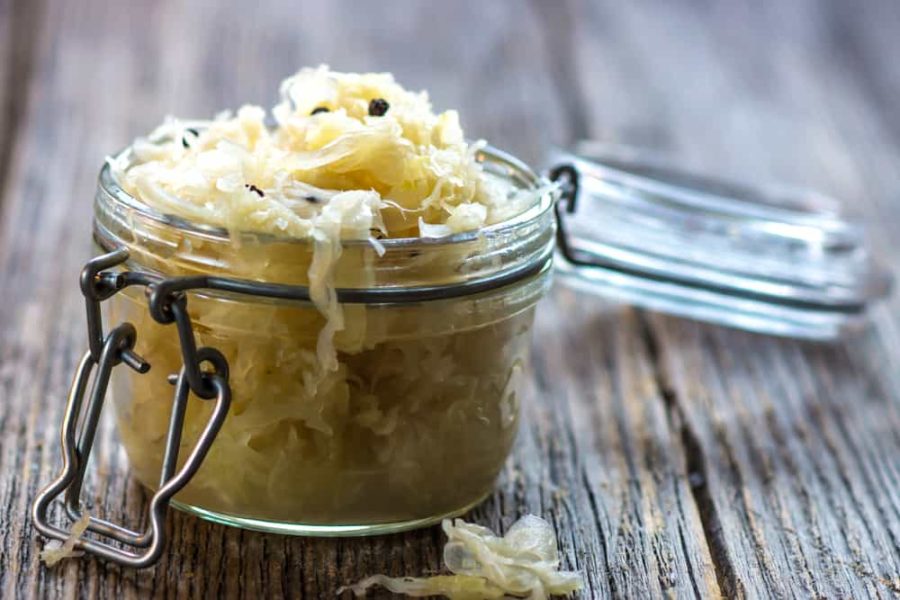
Sauerkraut is finely shredded cabbage that has been fermented by lactic acid bacteria. It is one of the oldest traditional foods and is popular in many countries, especially in Europe. Sauerkraut is often used on top of sausages or as a side dish. It has a sour, salty taste and can be stored for months in an airtight container.
In addition to its probiotic qualities, sauerkraut is rich in fiber as well as vitamins C, B and K. It is also high in sodium and contains iron and manganese. Sauerkraut also contains the antioxidants lutein and zeaxanthin, which are important for eye health. Make sure to choose unpasteurized sauerkraut, as pasteurization kills the live and active bacteria. You can find raw types of sauerkraut online.
2. Tempeh
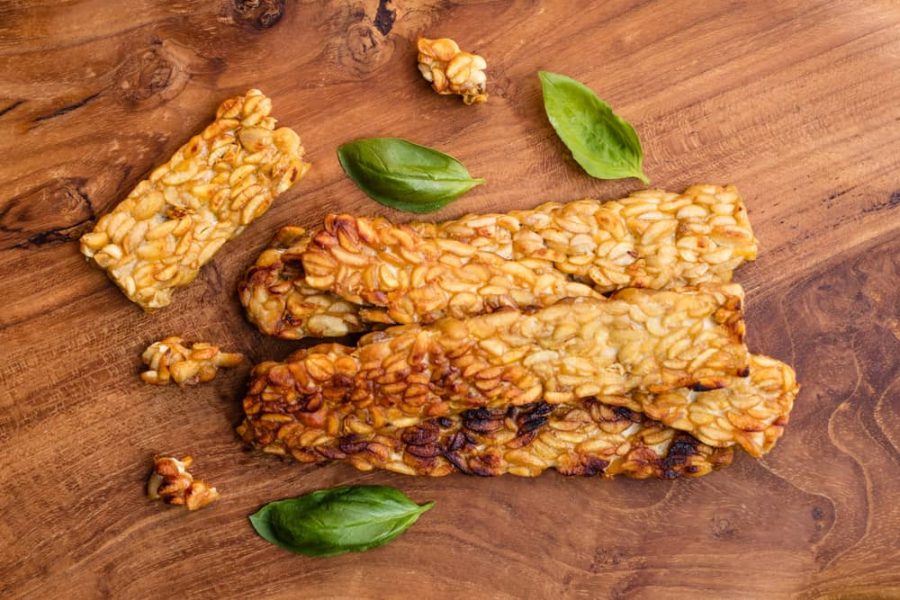
Tempeh is a fermented soybean product. It forms a firm patty whose flavor is described as nutty, earthy or similar to a mushroom. Tempeh is originally from Indonesia but has become popular worldwide as a high-protein meat substitute.
How do probiotics work in fermentation? The fermentation process actually has some surprising effects on its nutritional profile. Soybeans are typically high in phytic acid, a plant compound that impairs the absorption of minerals like iron and zinc. However, fermentation lowers the amount of phytic acid, which may increase the amount of minerals your body is able to absorb from tempeh. Fermentation also produces some vitamin B12, a nutrient that soybeans do not contain. Vitamin B12 is mainly found in animal foods, such as meat, fish, dairy and eggs. This makes tempeh a great choice for vegetarians as well as anyone looking to add a nutritious probiotic to their diet.
3. Kimchi
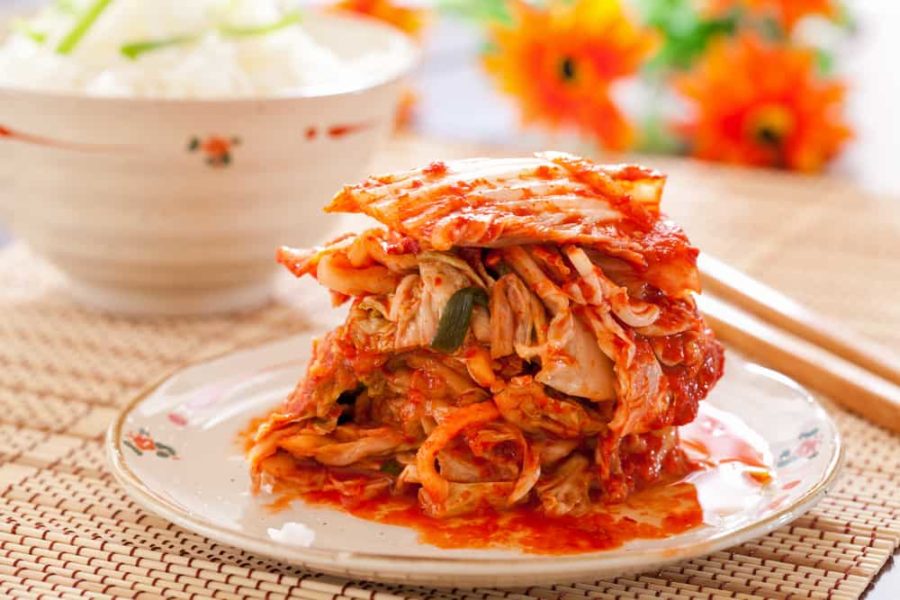
Kimchi is a fermented, spicy Korean side dish. Cabbage is usually the main ingredient, but it can also be made from other vegetables. Kimchi is flavored with a mix of seasonings, such as red chili pepper flakes, garlic, ginger, scallion and salt. Kimchi contains the lactic acid bacteria Lactobacillus kimchii, as well as other lactic acid bacteria that may benefit digestive health. Kimchi made from cabbage is high in some vitamins and minerals, including vitamin K, riboflavin (vitamin B2) and iron.
4. Miso

Miso is a Japanese seasoning. It is traditionally made by fermenting soybeans with salt and a type of fungus called koji. Miso can also be made by mixing soybeans with other ingredients, such as barley, rice and rye.
This paste is most often used in miso soup, a popular breakfast food in Japan. Miso is typically salty. You can buy it in many varieties, such as white, yellow, red and brown. Miso is a good source of protein and fiber. It is also high in various vitamins, minerals and plant compounds, including vitamin K, manganese and copper.
How do probiotics work in miso? Miso has been linked to some health benefits. One study reported that frequent miso soup consumption was associated with a lower risk of breast cancer in middle-aged Japanese women. Another study found that women who ate a lot of miso soup had a reduced risk of stroke.
5. Kombucha

Kombucha is a fermented black or green tea drink. This popular tea is fermented by a friendly colony of bacteria and yeast. It is consumed in many parts of the world, especially Asia. The internet abounds with claims about the potential health effects of kombucha. However, high-quality evidence on kombucha is lacking.
The studies that exist are animal and test-tube studies, and the results may not apply to humans. However, because kombucha is fermented with bacteria and yeast, it does probably have health benefits related to its probiotic properties.
6. Pickles
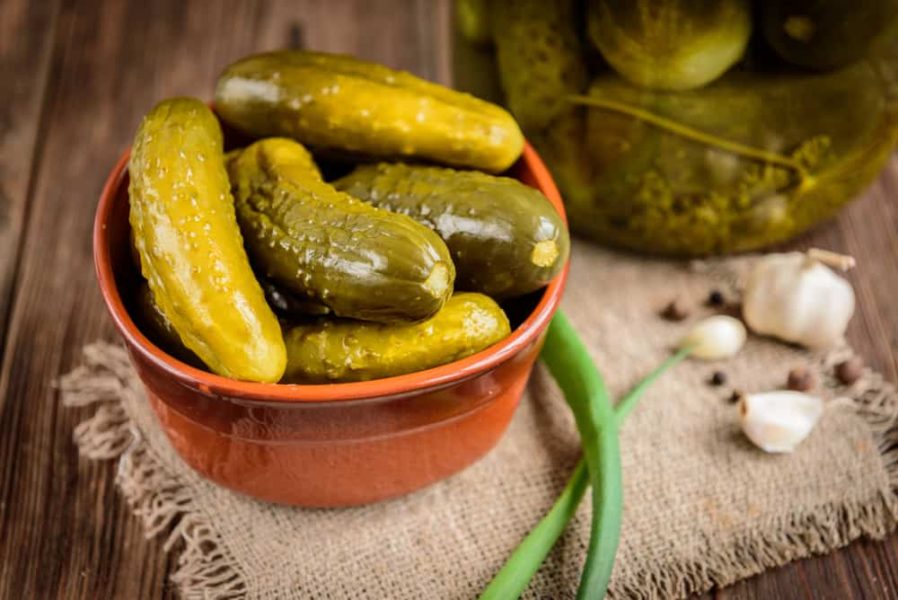
Pickles (also known as gherkins) are cucumbers that have been pickled in a solution of salt and water. They are left to ferment for some time, using their own naturally present lactic acid bacteria.
This process makes them sour. Pickled cucumbers are a great source of healthy probiotic bacteria that may improve digestive health. They are low in calories and a good source of vitamin K, an essential nutrient for blood clotting. Keep in mind that pickles also tend to be high in sodium. It is important to note that pickles made with vinegar do not contain live probiotics.
7. Natto
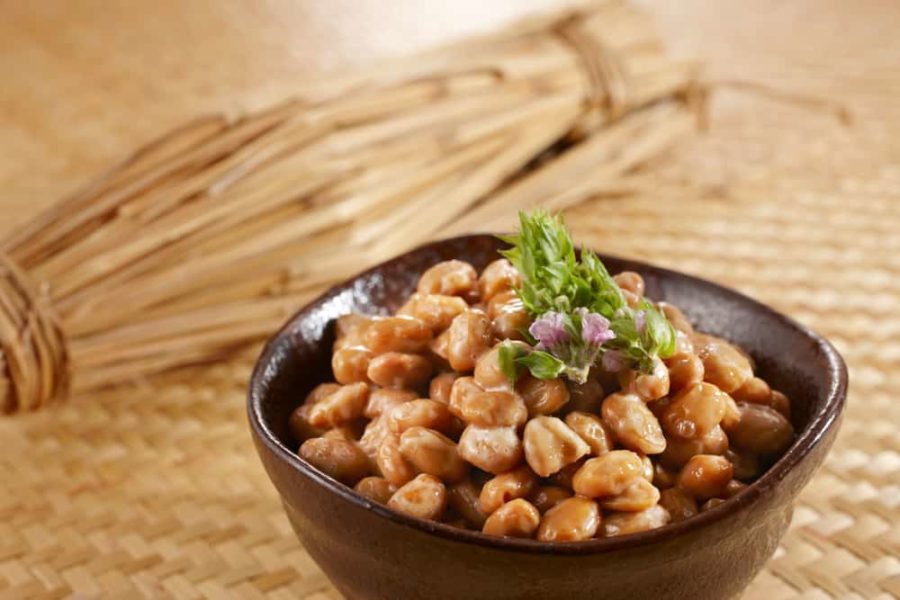
Natto is another fermented soybean product, like tempeh and miso. It contains a bacterial strain called Bacillus subtilis. Natto is a staple in Japanese kitchens. It is typically mixed with rice and served with breakfast.
It has a distinctive smell, slimy texture and strong flavor. Natto is rich in protein and vitamin K2, which is important for bone and cardiovascular health.
How do probiotics work in Japanese people? A study in older Japanese men found that consuming natto on a regular basis was associated with higher bone mineral density. This is attributed to the high vitamin K2 content of natto. Other studies suggest that natto may help prevent osteoporosis in women.’
The Link Between Your Gut and Mind

You know the feeling of butterflies in your stomach when you are dating someone new and falling in love? Or that ‘gut feeling’ you get when you know something is wrong or someone is lying to you? Often referred to as the ‘gut-brain axis’ or ‘gut-brain connection’, there is evidence to suggest that these two entities work in sync with each other. In order for us to have a healthy mind, our gut needs to be healthy too, and vice versa. An article on Healthline explains the connection:
‘Neurons are cells found in your brain and central nervous system that tell your body how to behave. There are approximately 100 billion neurons in the human brain. Interestingly, your gut contains 500 million neurons, which are connected to your brain through nerves in your nervous system. The vagus nerve is one of the biggest nerves connecting your gut and brain. It sends signals in both directions.
For example, in animal studies, stress inhibits the signals sent through the vagus nerve and also causes gastrointestinal problems. Similarly, one study in humans found that people with irritable bowel syndrome (IBS) or Crohn’s disease had reduced vagal tone, indicating a reduced function of the vagus nerve.
How Are The Gut And The Brain Connected?
Your gut and brain are also connected through chemicals called neurotransmitters. Neurotransmitters produced in the brain control feelings and emotions. For example, the neurotransmitter serotonin contributes to feelings of happiness and also helps control your body clock.
Interestingly, many of these neurotransmitters are also produced by your gut cells and the trillions of microbes living there. A large proportion of serotonin is produced in the gut.
Your gut microbes also produce a neurotransmitter called gamma-aminobutyric acid (GABA), which helps control feelings of fear and anxiety.
Your gut-brain axis is also connected through the immune system. Gut and gut microbes play an important role in your immune system and inflammation by controlling what is passed into the body and what is excreted. If your immune system is switched on for too long, it can lead to inflammation, which is associated with a number of brain disorders like depression and Alzheimer’s disease.’
Similarly, Health Harvard published an article that explained that in order to treat a distressed gut, you must take into consideration the mind:
‘The brain has a direct effect on the stomach and intestines. For example, the very thought of eating can release the stomach’s juices before food gets there. This connection goes both ways. A troubled intestine can send signals to the brain, just as a troubled brain can send signals to the gut. Therefore, a person’s stomach or intestinal distress can be the cause or the product of anxiety, stress, or depression. That’s because the brain and the gastrointestinal (GI) system are intimately connected. This is especially true in cases where a person experiences gastrointestinal upset with no obvious physical cause. For such functional GI disorders, it is difficult to try to heal a distressed gut without considering the role of stress and emotion.’
How To Improve Your Gut-Brain Axis
In order to keep your gut and mind working harmoniously, it is a good idea to take note of what you’re eating and how you are thinking. The Healthline lists the following food groups as beneficial:
Omega-3 fats
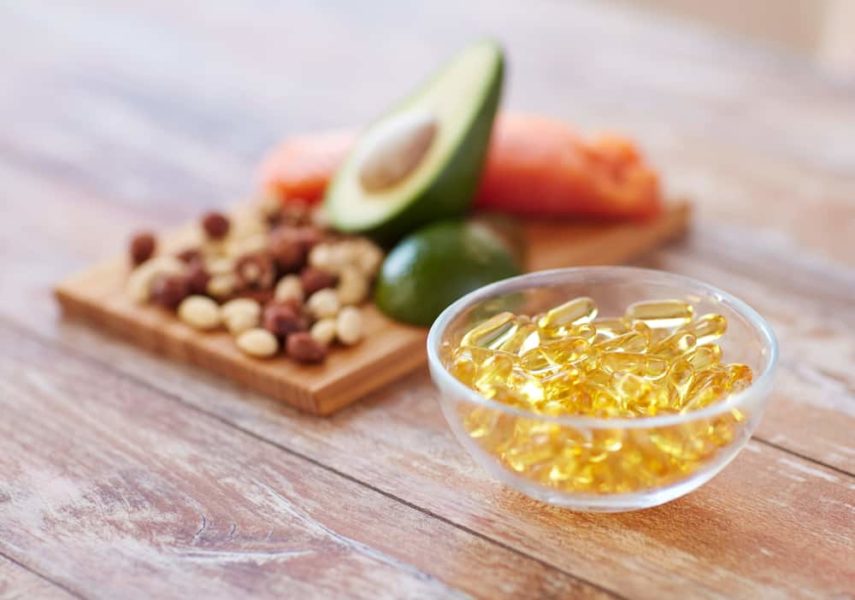
These are found in oily fish and also in high quantities in the human brain. Studies in humans and animals show that omega-3s can increase good bacteria in the gut and reduce risk of brain disorders.
Fermented Foods
Yogurt, kefir, sauerkraut and cheese all contain healthy microbes such as lactic acid bacteria. Fermented foods have been shown to alter brain activity.
High-Fiber Foods
Wholegrains, nuts, seeds, fruits and vegetables all contain prebiotic fibers that are good for your gut bacteria. Prebiotics can reduce stress hormone in humans.
Polyphenol-Rich Foods
Cocoa, green tea, olive oil and coffee all contain polyphenols, which are plant chemicals that are digested by your gut bacteria. Polyphenols increase healthy gut bacteria and may improve cognition.
Tryptophan-Rich Foods
Tryptophan is an amino acid that is converted into the neurotransmitter serotonin. Foods that are high in tryptophan include turkey, eggs and cheese.’
The Rules of the Mind

You have direct control over your mental wellbeing, even if you do not realize it, in terms of the thoughts and pictures that you create in your mind. Our subconscious picks up on the words we say and the thoughts we imagine, so it is very influential.
Marisa Peer explains the rules of the mind: “When I was training to be a therapist, I was challenged when I was told, “The mind is really complicated and very complex. It takes a lifetime to understand and to master.” I immediately thought, Well, how is that going to work then? No one has got a lifetime to master their mind. What’s the point of being 80 years old before you can finally work out your mind?
I have spent over thirty years studying the mind, applying leading principles with thousands of clients, and now I share what I have learnt so that everyone can benefit from it. Understanding how your mind works and applying these mind hacks will enable you to achieve lasting transformational change in your life. That is why I created Rapid Transformational Therapy™ (RTT™) as a complete solution-based treatment, to bring together the most beneficial principles from neuroscience, NLP, CBT, Hypnotherapy and Psychotherapy.
I am honored that my simple steps to produce dramatic and life-changing results have helped so many people and have been recognized with numerous international awards and accolades. I am excited to be part of revolutionizing the world of therapy, to help as many people as possible achieve their own personal breakthroughs.”
Marisa teaches people that ‘every word you say forms a blueprint and your mind and body must act to meet that blueprint, even if it’s a terrible blueprint, it will stick. That’s why it’s so important to think positively and focus on what you want and what you’re good at.’
Closing Thoughts
To conclude, do probiotics work? Yes! ‘Good’ or ‘friendly’ bacteria is needed to keep your gut working seamlessly, but it is also essential to keep your mind focused too. Once you have catered to both, your gut-brain axis will work harmoniously for all-round good health.
If you have enjoyed this article and want to go even deeper into learning more about your health, how to nourish your body and how to live well, then consider joining Marisa’s 21-Day Healthy Living Challenge.
With a range of daily trainings, meditations and audios, you will learn how to overcome negative, destructive habits when it comes to your health, and how to rewire your brain to naturally choose healthy options that nourish and support your health.
Interested? Click the banner to find out more about the challenge, and secure your place today.


